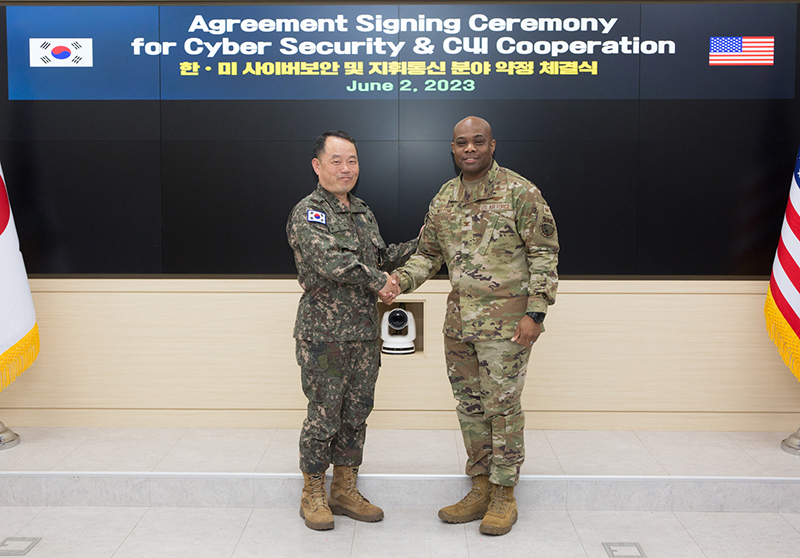Ensuring the safety of the ROK-US combined command and control system… “Expectations to ensure smooth combined operation”
The Ministry of National Defense and the Joint Chiefs of Staff prepared joint guidelines for cyber security with the USFK Command to ensure stable interlocking of the ROK-US combined command and control system and strengthened cyber security, and exchanged memorandums of agreement specifying them on the 2nd.
This guideline is the first joint cyber security guideline between the ROK and U.S. military authorities. ‘) to ensure stable interlocking between them.
This is the first joint cybersecurity guideline for the U.S. military with other partner countries around the globally operating CENTRIXS system.
In particular, it is expected to contribute greatly to expanding the ROK-US alliance to cyberspace, along with guaranteeing smooth combined operations and transferring wartime operational control.

While the Ministry of National Defense and the Joint Chiefs of Staff prepared joint guidelines for cyber security with the USFK Command, the agreement was reached at the Joint Chiefs of Staff Complex on the morning of the 6th with Ryoo Seung-ha, commander of the Joint Chiefs of Staff (Army Brigadier General), and USFK Communications and Electronics Staff Director Eric Wellcome (Colonel) attending. Signing the memorandum and taking commemorative photos. (Photo = Ministry of National Defense)
In order to prepare this joint guideline, the Intelligence and Information Policy Office of the Ministry of National Defense has formed a consensus through numerous discussions with the United States through the Information and Communication Technology (ICT) Cooperation Committee and Cyber Working Group of the Ministry of National Defense for three years from 2021.
In addition, it has laid the foundation for trust by mutually sharing the security evaluation results of the South Korean AKJCCS and the US CENTRIXS-K for the first time in Korea and the United States.
Meanwhile, when linking the existing command and control systems between the two countries, cyber security standards were not specifically specified, but a memorandum of understanding was drawn up between the two countries for linked data and the systems were linked.
However, through this cyber security joint guideline, specific details and procedures for cyber security necessary for system linkage were specified, improving security so that it can be linked in an environment where cyber security is guaranteed.
In addition, when a cyber threat is identified in the interlocking system, it is specified that the exchange of threat information, such as notification to the other country, is also implemented, enhancing the execution power of cyber security, thereby visualizing the cooperation between Korea and the United States in cyber security that has been discussed so far.
In particular, through this joint cyber security guideline, the two countries mutually understood that threats to their own systems are the same as threats to the other country’s systems, and agreed to continue cooperation to strengthen cyber security.
Furthermore, trust between Korea and the U.S. in the field of cyber security has been greatly enhanced by evaluating the system of each country with its own cyber security system and agreeing to share the results with mutual trust.
Accordingly, South Korea and the U.S. evaluate this agreement as a “big-step” that can serve as the basis for cybersecurity cooperation between the defense authorities of the two countries in the future.
Starting with this agreement between the Joint Chiefs of Staff and the USFK, the Ministry of National Defense plans to continue further discussions between the ROK and US defense departments through the ‘2023 ROK-US Information and Communication Technology Cooperation Committee’ in June so that cybersecurity cooperation can be expanded to all areas of national defense. .
Inquiries: Data Policy Officer, Intelligence Information Policy Office, Ministry of National Defense (02-748-5950). Department of Defense.
Source: Policy news, link

Comments